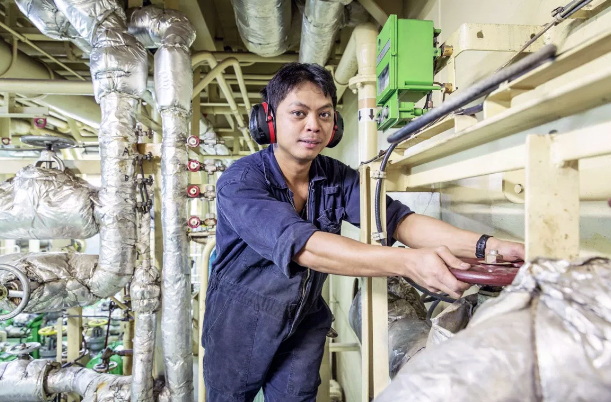“The most important aspect of saving fuel and energy on board a vessel, is the crew,” Peter Knudsen, managing director at Blueflow Energy Management told VPO Global.
The maritime industry has taken huge strides to improve the performance of the global fleet with the development of new technologies, increasing quantities of data, and improved connectivity between ship and shore. Advanced monitoring packages and ultra-modern technologies have the potential to reap huge savings in fuel and time, but in order for these savings to be achieved, the crew on board must understand what is going on and should have the desire to drive a more energy efficient ship.
“You can put any hardware on board, but if you don’t have the crew on your side, then it will have limited effects,” explained Mr Knudsen as he emphasized the importance of having the crew’s mindset with you at all times. A lot of the time new technologies and data collection systems are installed on board a vessel and the crew are expected to know how to operate them and expected to want to drive fuel savings, but this is not always the case.
One of the key problems is that information is often presented on board but not in a way that all crew will be able to understand. This not only makes it challenging for them to recognize where efficiency gains can be made, but can also leave them feeling overwhelmed as increasingly complex technology is installed without additional training on how to operate it or interpret the results it generates.
For Mr Knudsen, the answer is to ensure the crew is involved and feel part of a decision that leads to better ship performance. “The first thing is to make sure the information on the vessel’s performance is easy to read, easy to understand and interpret and most importantly, that the results are available immediately when change has been made.” Mr Knudsen believes that giving this feedback to the driver is one of the most motivational aspects for improving efficiency. “If they can see what they do then they know they can affect it, they will start to compete with themselves, gaining more and more knowledge on how to operate a vessel to maximum efficiency.” He explained that giving seafarers this control enables them to engage in the processes that lead to fuel savings and increases their exposure to technologies and software, enabling them to develop a more thorough understanding of the operational environment surrounding them.
Steven Jones, project leader Seafarers Happiness Index, confirmed to VPO Global that training seafarers to use the technology and not giving them too much too soon is vital to a vessel’s operational efficiency.
“The danger is for seafarers that they are faced with a huge ramp up in technology, not necessarily being trained efficiently to use it, but expected to perform so much better with it. So, you’re caught in a really difficult place between two stones – this crush and pressure and rising tide of incredible potential of technology, with this clamor from those that have invested in it to want those results, and the people on the ship not terribly prepared for it. So how do we translate the potential of technology into the actuals of it? That is a difficult one.”
Mr Jones believes that there is a cultural shift in what it is to be a seafarer now. “In order to get the most out of a vessel and to get the best performance from a technology, we must look at how the potentials of technology can be translated into the actuals of it.”
One part of this is ensuring that crews are recognized for their capabilities in operating technologies that enhance vessel performance. “It is hugely important that seafarers are embraced as an important part of the solution and not just sent over the horizon with a load of new technology and a load of new problems, which may have potential vulnerabilities attached.”
